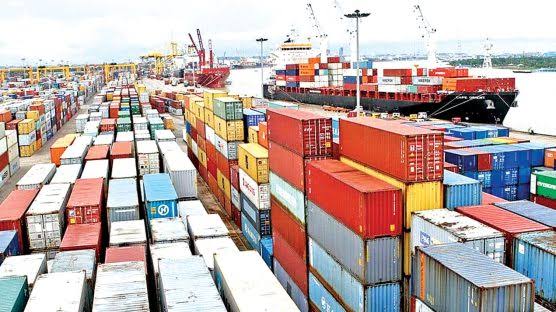
The long-awaited implementation of the International Cargo Tracking Note (CTN) in Nigeria is causing concerns among stakeholders in the maritime industry.
The CTN is a vital document in international shipping and trade, designed to enhance security and transparency in the movement of cargo. It requires that detailed information about cargo shipments, such as their origin, destination, contents, and other relevant details, be provided to authorities prior to shipment. This information is crucial for tracking and monitoring cargo to prevent smuggling, fraud, and other illicit activities.
Explaining the reason behind the delay, the Director of Consumers Affairs of Nigeria Shippers Council, Chief Cajetan Agu, in a chat with our correspondent cited change in government as the reason behind the delay and mentioned that the council is awaiting the opportunity to brief the new minister on the matter before proceeding with the implementation.
Our correspondent gathered that the delay in implementing the CTN despite approval by the past administration of President Muhammadu Buhari has raised questions among stakeholders about whether the change in government is the sole factor.
Stakeholders who spoke to our correspondent expressed doubts about the delay being solely attributed to the change in government.
Dr. Eugene Nweke, Secretary of the Customs Consultative Committee (CCC), and former President National Association of Government Approved Freight Forwarders (NAGAFF) weighed in on the matter, emphasizing the need for a comprehensive discussion regarding CTN implementation.
Nweke mentioned that the CCC intends to request a thorough and healthy dialogue with the Nigerian Customs Service (NCS) to ensure that the CTN becomes a valuable addition to the port value chain, rather than just a revenue generation tool. He stressed that the goal should be to make CTN implementation an inclusive and sustainable practice, considering the interests of the trading public.
He said the CTN should not be perceived as a mere trade document contraption solely for revenue generation objectives. He further indicated that the CCC’s support for the CTN application stems from its relevance to Customs operational interests.
“Chief Agu may be right with that, but judging from the research made and recommended by the Sea Empowerment Research Center to the Customs Consultative Committee, the CCC intends to request and hold a robust and healthy tool-addition discussion with the NCS on the CTN implementation with the intention to making the CTN a value addition and necessary tool in the port value addition supply chain. Above all making the CTN implementation process an all-inclusive acceptable and sustainable practices is a collective priority and concerns of both the NSC and the CCC, while focusing on the large interest the trading public.
“Our concern is that, the CTN should not be perceived as a mere trade document contraption solely for revenue generation objectives, judging from global applications”, he said.
Speaking also, Mr Festus Ukwu, National Secretary of the National Council of Managing Directors of Licensed Customs Agents (NCMDLCA), pointed out a key concern shared by many stakeholders. Ukwu emphasized that the CTN’s implementation could increase the cost of doing business within the Nigerian ports, potentially leading to higher costs of goods and services and exacerbating inflation.
“The CTN is being resisted by major stakeholders in the maritime industry mainly for the fact that it will increase the cost of doing business in our ports corridor, thereby affecting the cost of goods and services ultimately aggravating inflation” he said.
The sole administrator of Association of Nigeria Licensed Customs Agents (ANLCA); Mr Babatunde Mukaila also weighed in on the issue, echoing Chief Agu’s sentiment about the delay being connected to the change in government. Mukaila expressed optimism about the new minister, particularly in the context of the blue economy.















